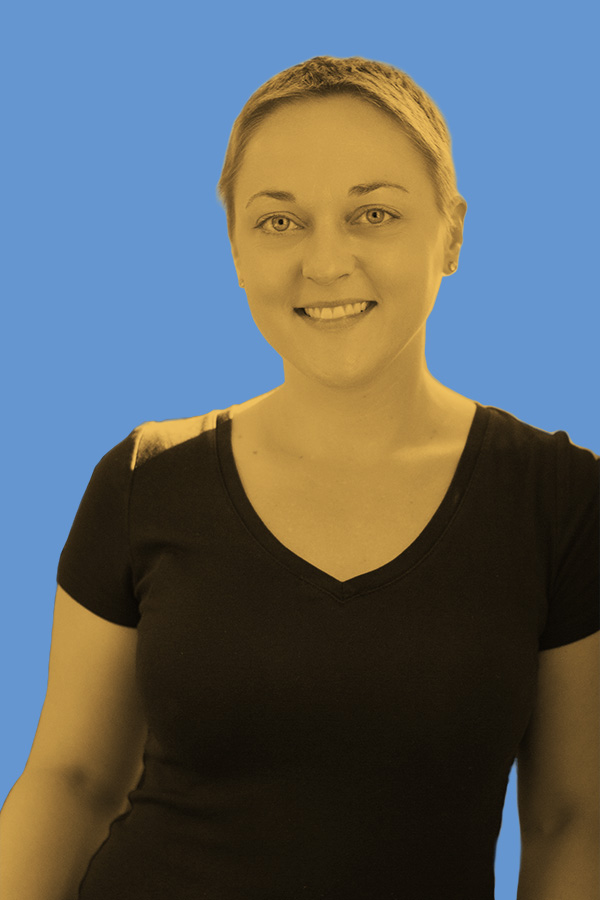
Erica Raleigh is one of D3’s Co-Executive Directors
Why did you choose to participate in the Worker Owner transition team?
I suppose I could have just created the worker owner structure and written all the rules on my own, but that would have been in pretty strong contrast to the democratic process we were going for. Kidding aside, I felt strongly that worker ownership was right for D3 and wanted to demonstrate my commitment to finding our way into the new model. There were a couple times along the way where it was necessary for me to not participate and allow the rest of the group to have conversations without the current owner in the room. Those moments seemed just as important for developing the worker owner group’s muscles as the moments when we were all working through things together. Now that we’re through to the other side, we can all come from a place of equal footing during ownership-related conversations.
Why is it important to you for D3 to operate cooperatively? And what about co-ops are important to you?
I lived through every transition D3 has experienced at a structural level and every evolution of D3 at an organizational level. These transitions are important and I wouldn’t trade the experience for anything, but I also know how incredibly difficult and time consuming they can be for the organization and for the individuals that comprise the D3 team. I have a strong interest in cultivating a resilient and sustainable D3 that will thrive for many years to come, and from research, observation, and experience I believe a cooperative ownership structure has the best chance of making that a reality.
One of the key issues on my mind early on was how vulnerable organizations can be when everything is built around an individual leader. A team grows around that one person, relationships with other people and organizations often grow in direct connection to that same individual, and while there are certainly advantages to this approach, it can also make the success of an organization reliant on the continued presence of that one person. If I’ve learned one thing in my life, it’s that nothing ever stays the same. I often ask myself, “what happens if [this person] wins the lottery and moves to Fiji?” Will the organization have the means (knowledge, relationships, capacity, etc.) to carry on and make sure the people relying on D3 still get what they need when they need it? This aspect of resilience is a big reason for our move toward co-executive directorship. The shared knowledge, responsibility, leadership, and more between executive directors make it more likely that the organization will keep moving forward even if one of us gets that life changing news.
Cooperative ownership takes us a step further, ensuring even more people share the rights and responsibilities that come with stewarding an organization. We can have a diversity of perspectives in every situation that arises, more minds cultivating and shepherding the vision, and an increased likelihood that no matter what happens at an individual level the collective purpose of the organization will carry forward.
What key takeaways do you have from your involvement with the D3 Worker Owner transition?
So many lessons… Here are a few:
- This stuff takes time! As with many other things in life, it’s nice to have ambitious goals but so important to remember that each step of the journey is just as important as the one that takes you over the finish line. This transition has taken much, much longer than I ever imagined it would, but we are finally here and we are better prepared because we took the time to make sure this was done right.
- Change can be uncomfortable, and at the same time it’s a great opportunity for growth. I tend to be a person who leans into change, but when I do I want to get through it quickly. I’ve learned more about patience and process on this journey with the team and I think I’m better for it. And I think all the members of the worker owner group deepened our abilities to communicate more directly and compassionately with one another. The process built a lot of trust that will be an important foundation for D3 moving forward.
- Every person who walked through our doors had an impact on where D3 is today. This moment has been an opportunity to reflect on all the faces and personalities we’ve had over the years as part of the organization, and I have been feeling gratitude for every one of them.
What are you most looking forward to as a worker owner in 2022?
I’m looking forward to many things in 2022, but perhaps most exciting is working with our next eligible candidate for worker ownership to figure out how to teach everything we’ve learned to someone who has fresh eyes.
More about Erica
Erica Raleigh joined Data Driven Detroit (D3) as a founding member in 2009. Now the co-executive director, she began as a research analyst, with a background in housing, community development, transportation, and public safety research. After taking on leadership of D3 in 2013, she successfully managed the organization’s transition to an L3C two years later. Erica is deeply committed to making data more accessible, believing that everyone should have equitable access to information to make the best decisions possible for themselves, their organizations, and their communities.
Erica holds a Master of Urban Planning from Wayne State University, and a Bachelor of Arts in Hispanic Studies from the University of Michigan.
